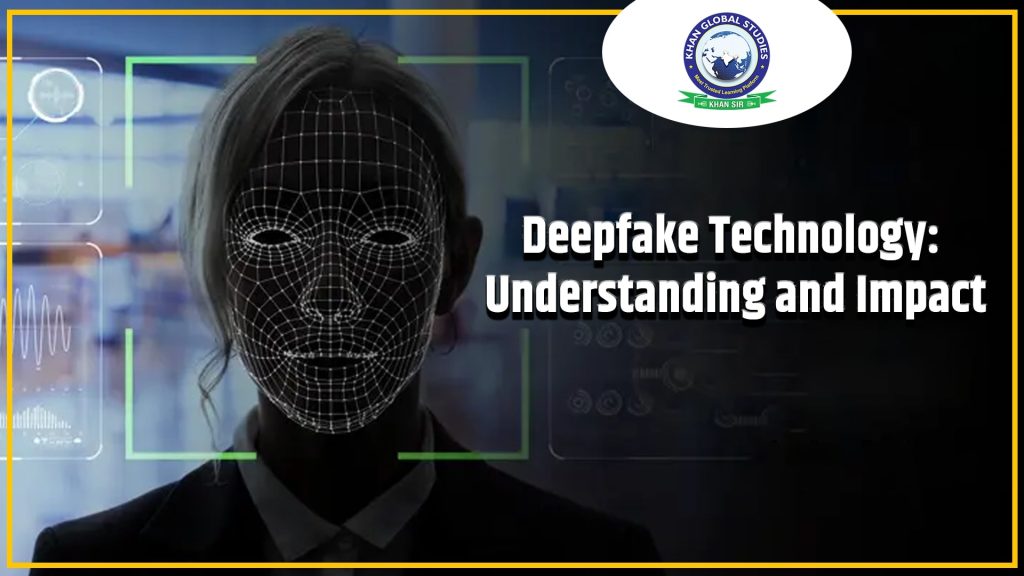
Recently, a video purportedly showing actress Rashmika Mandanna entering a lift has sparked controversy on the internet.
About
- What initially seemed real was a ‘deepfake‘ of the actress.
- The original video features Zara Patel, a British Indian girl, whose face was tampered with and replaced with Mandana’s face.
What is Deepfake Technology?
- Deepfake is a term that combines “deep learning” and “fake”. It refers to a video that has been edited using algorithms to replace the person in the original video with someone else, especially a public figure, making the video look authentic.
- Deepfakes use a form of artificial intelligence called deep learning to create images of fake events.
- For example, in March 2022, Ukrainian President Volodymyr Zelensky revealed that a video posted on social media in which he appeared to instruct Ukrainian soldiers to surrender to Russian forces was a deepfake.
How can you find out?
- Unnatural eye movements: Deepfake videos often display unnatural eye movements or gaze patterns.
- Mismatch in color and lighting: Creators may have difficulty replicating exact color tones and lighting conditions.
- Compare and contrast audio quality: AI-generated audio may have subtle imperfections.
- Strange body shapes or movements: These can sometimes result in unnatural body shapes or movements.
- Artificial facial movements: Software cannot always accurately replicate real facial expressions.
- Unnatural position of facial features: Sometimes displays distortions or misalignments.
- Awkward posture or posture: They often struggle to maintain natural posture or posture.
Impact
- AI has raised fears about using tools to synthesize misleading content, which would lead to misinformation.
- Deepfakes can also cause short-term and long-term social harm and accelerate the already declining trust in traditional media.
- Such erosion can contribute to a culture of factual relativism, causing the fabric of civil society to become increasingly strained.
- Deepfakes can act as a powerful tool for malicious nation-states to undermine public security and create uncertainty and chaos in the targeted country.
- Deepfakes can be used by non-state actors, such as insurgent groups and terrorist organizations, to make inflammatory speeches to their opponents or engage in provocative actions to incite anti-state sentiments among the public.
- Another concern with deepfakes is the liar’s advantage; Any undesirable truth is dismissed as deepfake or fake news.
Laws related to Deepfakes in India
- Currently, there is no law specifically for deepfake cyber crime in India, but many other laws can be added to deal with it.
- Section 66D of the Information Technology Act, 2000: When any communication device or computer resource is used with malicious intent to commit fraud, the offender may be punished with imprisonment of up to three years or a fine of up to Rs 1 lakh.
- Section 66E of the IT Act: Deepfake crimes violate the privacy of a person by capturing, publishing or disseminating images of him in the mass media.
- Copyright Act, 1957: Under Section 51 of the Act, using any property of another person over which the latter person has an exclusive right is a violation of the Act.
- Data Protection Bill 2021: The Bill provides for penalties for breaches of personal and non-personal data of any nature.
Global Stance on Deepfakes
- Bletchley Park Declaration: At the recently held AI Security Summit (the world’s first) at Bletchley Park, UK, 28 major countries including the US, China, Japan, UK, France and India and the EU agreed to sign a declaration. He said global action is needed to deal with the potential dangers of AI.
- Executive Order of the US President: It aims to protect against threats posed by AI and to monitor the security benchmarks used by companies to evaluate generative AI bots like ChatGPT and Google Bard.
- G20 Leaders’ Summit in New Delhi: The Indian Prime Minister had called for a global framework for the expansion of “ethical” AI tools.




